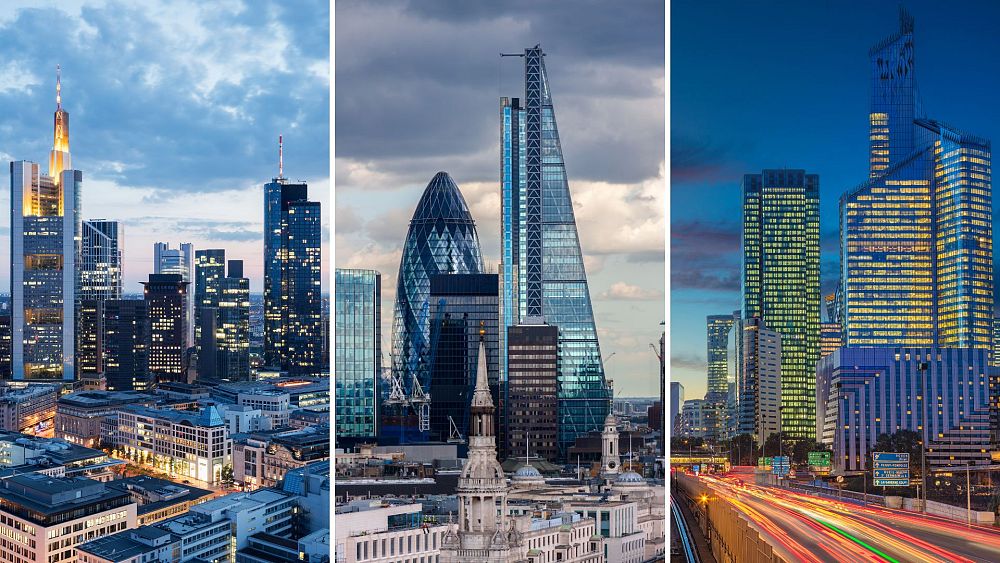Energy companies top the recently released Fortune 500 Europe list.
The Fortune 500 is a ranking produced by Fortune magazine of the 500 best American companies. These are classified according to the money they earn. This year, the magazine, “Fortune”, has just published its very first European edition, called “Fortune 500 Europe”.
The ranking includes companies from 24 different countries in the region, including Russia.
The total turnover of the entire Fortune 500 Europe ranking is $13.9 trillion (€13.02 trillion), the equivalent of 3.5 times the GDP of Germany.
For comparison, the total revenue of the U.S. Fortune 500 is $18.1 trillion and the total revenue of the Fortune Global 500 is $41 trillion.
Despite recent reports that its economy is lagging, Germany remains Europe’s biggest powerhouse when it comes to moneymaking businesses: 80 German companies make the list, with Volkswagen and Uniper taking the top three spots.
It is also worth noting the presence of the Russian company, “Gazprom” which, although faced with a volley of Western sanctions, due to the war waged by Moscow against Ukraine, still ranks eighth out of the ten most major players in Europe.
As tensions and world wars have driven up energy prices and limited supplies, the industry’s major players have seen their revenues increase and have therefore secured some of the top spots on the list, including number one: giant British energy company, “Shell”, is the largest European company with an annual revenue of 381 million dollars (355.8 million euros), in 2022.
Other companies in the energy sector include French “TotalEnergies” (4), British “BP” (6) and “Électrcité de France” (EDF), which completes the top 10 most valuable companies from the continent.
List of the top 10 companies in the Fortune 500 Europe 2023 ranking
- Shell (UK)
- Volkswagen (Germany)
- Uniper (Germany)
- TotalEnergies (France)
- Glencore (Switzerland)
- BP (UK)
- Stellantis (Netherlands)
- Gazprom (Russia)
- Mercedes-Benz Group (Germany)
- Electricité de France (EDF) (France)
The banking and financial sector, for its part, hampered by a lukewarm mergers and acquisitions market, appears further down the ranking, with the Spanish “Banco Santander” in 21st position, the French “BNP Paribas” in 27th, and the British “HSBC Holdings” in 28th.
Although they appear lower in the ranking, financial companies remain the most numerous, with 84 companies making the list.
In addition to the energy and financial sectors, companies in the building materials (30), food and beverage (27) and retail (25) sectors also appear among the 500 largest companies of Europe.
“European companies faced several challenges during their last fiscal year, including the war in Ukraine and its impact on energy prices, as well as economic volatility due to high inflation and interest rates “says Scott DeCarlo, editor-in-chief of the “Fortune” list.
“Despite headwinds, some industries benefited from a revival in consumer demand emerging from the COVID-19 pandemic, and sustainability remained a priority for many”he adds.
“Population diversity comes with varied challenges, and that is why these European powers continue to grow and adapt in an increasingly complex and unpredictable geopolitical and economic landscape.”
Which countries have the richest businesses?
After Germany, the United Kingdom is the most represented country on the Fortune 500 list, with 76 companies appearing in the ranking, worth more than $2 trillion (€1.87 trillion), or more of 15% of the total turnover of the list.
Big British names on the list include “Tesco” (34), “BT Group” (152), “Diageo” (188), “Marks & Spencer” (255), “John Lewis Partnership” (274) and “BBC Group” (436).
The United Kingdom and Germany are followed by France: 71 French companies appear on the list, compared to 37 for the Netherlands and 36 for Switzerland.
The Fortune 500 Europe includes 35 female CEOs, or 7%, which is higher than the 5.8% female representation in the Fortune Global 500, but lower than the 10.4% in the ranking “Fortune 500 of the United States”.
The majority of companies on the list are well established, having, on average, 108 years of existence.
The oldest company on the list is “Anheuser-Busch InBev”, whose German roots date back to 1366.



